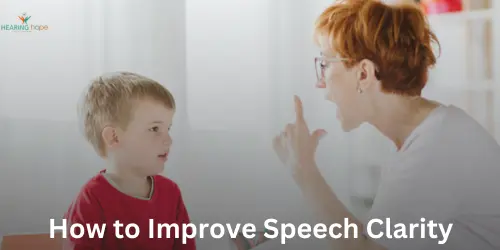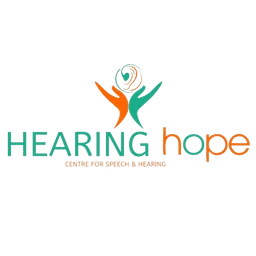
How to Improve Speech Clarity: Essential Tips and Techniques
Speech clarity is not just in the way people pronounce their words and sounds as a good speech and thus self-confidence at the workplace and beyond is more of the type of speech. It defines in what way others will see and comprehend us. ‘Clearness” offers meaning to be easily understood in what one says in a meeting or presentation and in some basic dialogues by other participants.
Therefore, it is now of great essence for any focused learner aspiring to enhance verbal communication skills to enhance speech clarity. The article. The article deals with how to achieve clear speech: Helpful tips and information on how to get your message across in a clearer, smarter way. When you become proficient at speaking so that your words are thoroughly comprehensible you can be confident that what you said was understood just as you have said it.
Among the most basic reasons you would wish to work on your elocution include eradicating some kind of stammer, slurring or other speech disorder or preparing for some event in which you may need to make a speech in public. Regardless of the reason, the techniques pointed out here can be a good starting point as to the direction to take in order to master good speech patterns and general speaking skills.
These pages offer many techniques and exercises that will revolutionise how you speak clearly. Such speaking skills will be useful to all the speakers – no matter what their current speaking proficiency level is – even when their speaking goal is to speak with less intelligibility.
The following pages give a clear description of many techniques and how to improve speech clarity. Most speakers of any proficiency level will still benefit from such speaking skills, even if the hoped-for outcome is simple, clear speech.
Understanding Speech Clarity
What is Clarity of Speech?
Clarity of speech means the way words are spoken each time. It’s important because it increases the ability to clearly understand people about us while communicating with them, whether talking to friends, answering a question in class, or telling a story.
Why Clear Speech?
It’s important because it increases the ability to clearly understand people about us while communicating with them, whether talking to friends, answering a question in class, or telling a story.
- Communication: Clear speech allows other people to better understand what you are saying; this reduces confusion.
- Confidence: If you believe that people are going to understand you, then you are more likely to enter into conversations and display a more confident attitude.
Common Problems That Create Poor Clarity in Speech
- Mumbling: Sometimes, folks mum and blur words together.
- Speaking Too Fast: When someone is speaking at an unrealistically fast rate, it’s hard for people listening to catch all the words.
- Poor Diction: Not pronouncing words clearly will make it tough for listeners to hear.
Clarity in your speech will make speaking and listening pleasant and less frustrating for you and the people you communicate with. Using some of the basic skills we shall discuss below, you can immediately start to speak more clearly today.
Speech Clarity: Check How Well You Are Coherent In Your Speech
Maximise the fluency of what you are currently doing and what you are not doing. To assess the clarity of your speech, one should perform the following actions:
Self-Assessment Methods
- Self Recording: these days, everyone has a smartphone, and even if you are, say, at an exhibition speaking with many people, you can always record yourself and let the event do what it needs to do at that moment. Listen to that and try to identify the sections where you either were mumbling, speaking too fast or where you pronounced a few words rather unclearly.
- Reading Books Aloud: one of the useful techniques for overcoming shyness and lack of confidence when speaking in public is to read books operating with one’s voice. In this case one should hold one’s attention to the pronunciation and repair of the phrases and the even pace of speech one can keep.
- Seek Critique: infamously, it is impossible to dissociate oneself from speech and make an evaluation of it. Get someone like a friend or relative to listen to your speech and rate how clear you are in delivering your message.
Technological Aids In The Evaluation Cicero Public Speaking Network, n.d. Mobile for Android OS: Available, Interaction – Speech Analysis Tools. Finally, there are a few interactive tools.
- Speech Elocution Application: A few of these apps include recorded speech patterns analysis and suggestions on the areas needing improvement. Applications such as ‘Fluently’ and ‘Speech Tutor’ are useful in these aspects for further enhancement.
- Visual pronunciation facilitators – this artificial intelligence-powered ‘ELSA Speak’ tool includes real-time acknowledgement of any word that is pronounced wrong with regards to certain standards and encourages one to get rid of that word and pronounce it correctly.
- Practice: Language learning apps or websites can be of great assistance. They offer training on pronunciation, and fluency, and therefore contribute to making speech clearer.
So, employing these techniques and tools, as well as ensuring that you self-assess the clarity of your speech regularly, will probably lead you to observe changes for the better as time goes by. This shift in mindset concerning communication will help you become one of the most effective speakers, as you will be able to speak clearly and to the point.
General Reasons That Hinder A Wispy Speech
Every individual should appreciate that there will be some situations where clarity in speech may not be achieved. This will therefore become better addressed and rectified.
Understanding the Interferences of Clear Speech
- Physiological Factors: Discomforts, such as sore teeth, tongue binding, or problems with the throat all interfere with the creation of words.
- Neurological Excitability: Dysarthria is one medical condition that is the outcome of damage to the nervous system which interferes with the patient’s control over the muscles used in speech.
- Practised Speaking Patterns: Speech that is articulated too hurriedly, incoherently, and makes evocative use of the style as well as other linguistic aberrances lead to speech incomprehension.
- Sociological Causes: Individuals with apprehensions or low self-esteem usually talk either too fast or too softly which eventually affects the level of clarity of their speech.
Variations According to Age Groups
- Young Children: In young children, slurred speech is often associated with the learning of new speech sounds or may be connected to developmental impairments such as childhood schizophrenia or speech apraxia.
- Teenagers and Young Adults: At this age, slurred speech may be caused by fast speech rhythms, colloquial vocabularies, or modes of communication amongst their peers.
- Adults: Laryngeal or nervous disorders can also cause decreased speech clarity in adults due to tension-prone working environments or social conflict.
- Older Adults: Muscular degradation of old people or the failure of cognitive movement in aged people is significant and may, therefore, play a major role in the factors related to factors that affect the intelligibility of speech among the aged.
Such recognitions of limitations can help facilitate a search or practice of the right kind of treatment or exercise, that is radial to an individual’s specific circumstance and thus fosters more articulate and productive conversations.
Methods that can be used to Improve Articulate Speech
Articulate speech must be improved by specific techniques to tackle how you articulate words and the way of giving them. Here are some helpful techniques:
Tongue Twisters to Improve Pronunciation and Articulation
Begin with simple straightforward tongue twisters, then you may proceed to complex sequences for practice. This will improve quickness in speech organs.
- Phonetics Exercises: Practice some specific difficult sounds for you. Repeating challenging phonetic sounds can make your articulation stronger.
- Mimicry Practice: Try to mimic a speaker whom you would like to imitate for his/her sheer clarity of speech. Listen to how carefully he pronounces the words and even try to follow his style.
Tips for Speaking Slow and Deliberate
- Pace Yourself: By starting with a metronome app as you practice slowing down speech, you can then achieve a speech rate where you may articulate with clarity and not speed.
- Use Pause Mechanisms Well: Adjust to placing pauses in your speaking that would give you enough time to think about the next words you will utter and provide sufficient time for your listeners to digest what you said.
- Be Clear with Your Pronunciation: Use the syllable of every word as much as possible, especially longer words, so one can understand what you are saying.
Such skills, while elevating your elocution, also hone the ability to express in general because the way you verbalize becomes more profound and creative. Continual practice in this manner may even lead to a remarkable change in one’s speech, making most conversations more interesting and productive by several notches. If you are contemplating professional aid, then speech therapy services in Delhi are available that provide focused interventions to help you communicate even more lucidly and effectively.
Importance of Breathing in Maintaining Clear Speech
Mastering the control of one’s breath is among the most significant aspects of the art of speech. There are several ways in which the quality of speech can be enhanced through breathing:
Proper Breathing While Speaking Techniques
- Diaphragmatic Breathing: Master the ability to breathe using the diaphragm as opposed to the chest. Such kind of breathing will deepen the voice thereby making it more firm.
- Controlling Breathing: Inhale for four seconds, hold and exhale for four seconds. Practice this exercise before speaking any words. This is to help control the pattern of breathing especially when one is speaking
Laryngeal and Phonatory Muscle Development Exercises
- Sustained Phonation: Prolongation of a phonated vowel sound to the maximum length that can be achieved in one breath. This exercise is intended to enhance the vocal cords as well as the capacity of the lungs.
- Swimming or Popping Balloons: It is also a good idea to do some activities that need controlled breathing, practice popping balloons or swimming. This is because this can help elevate the lung capacity and indirectly enhance the speech.
How to Develop Clarity of Speech by Improving Listening Skills
Active listening is a skill that is fundamental given that it helps one to appreciate the details of speech. Effective listening can assist in the improvement of clarity of speech.
How Active Listening Enhances Your Speech Clarity
- Reflective Listening: Try to focus on what other people are saying and be able to paraphrase it. This allows for practising good speaking and listening as well.
- Feedback Seeking: Ask for critique after interactions of how clear you are. This may indicate what areas need work.
Exercises to Improve Listening Abilities
Focused Listening Sessions: Select any podcast audio or a speech by a very clear speaker. Do not do anything else but listen. The person is trying to identify the essential points.
Additional Techniques for Improving Speech
Professional support and other technological interventions can be very useful for persons who want to make great strides in making their speech clear. Here is their contribution:
- Professional Speech Therapy: Importance Speech therapy professionals assess the individual voice patterns of the clients Presenting problems Voice therapy depends on clinical experience rather than on proper assessment of underlying causes.
- Strategies: Speech therapists are able to develop specific activities that fit the individual’s needs and problems which makes the process more effective.
What tools in the advancement of speech clarity can be used on the aids Technology can lend a hand in improving pronunciation.
- Immediate Corrections: Most modern software and apps provide possibilities to pronounce and speak fluently and listen to the emergence and practice of sounds instantly.
- Graphics Aided Software: Certain software offers graphical support in performing speech and helps understand the timely speaking and the emphasis and pitch changes while speaking fluently.
Tools and Applications that Help Improve Speech
Speech clarity can be improved with the aid of technology. Technology that can play a meaningful improvement in speech clarity is mentioned below with some suggested tips on its effective use.
An Understanding of the Best-Rated Speech Enhancement Products and Services Available on the Internet
- Speechling: Similar to Rosetta Stone, but dedicated to pronunciation and fluency, where a user can record himself and get a reply back from a language coach.
- Pronounce Live: An artificial intelligence tool that evaluates a person’s ability to say words correctly and provides practice for improving articulateness.
- FluentU: Allows users to watch videos in the target language with flashcards and pronunciation quizzes where users also practice speaking.
Psychological barriers
Communication apprehension through speaking anxiety and shyness are among some of the great hurdles to proper communication. All types of communication apprehension – these and every other form – need to be controlled for effective communication. There can be a couple of ways that these hurdles can be focused upon and therefore, a person’s level of hypertension can be increased.
Overcoming Fear of Public Speaking
- Mindfulness and Relaxation Techniques: A minute or two before the speech, one might go into a mindful state where the anxiety has lowered. Good techniques to calm one’s nerves are deep breathing, calm meditation, or progressive muscle relaxation.
- Positive Self-Talk: Two very important factors, mindset and self-image that one has to work on to successfully take part in public speaking. Look forward to the successful instances in the past when you addressed many people confidently.
Hayakawa Strategies for Self-confidence Building in Public Speaking and Other Conversations:
- Don’t Forget the Preparation: Often confidence is built within an orator due to extensive preparation. Override the request familiarize yourself with the materials, and practice at least two times your presentation before the speech or important meeting.
- Weakness of Do Not Start Too Big: If you are a beginner introduce some casual speaking events to get an opportunity to build confidence. Then gradually increase your audience as you feel comfortable speaking before them.
- Imagine You Have Won: Practice oratory self-talk by imagining yourself at the microphone, preparing to communicate clearly. Has been found to improve actual delivery in speaking.
- Encourage Reactions: Perhaps a discipline tutor or a classmate, a respected person who can assess the progress related to your oral skills, should help out.
Conclusion:
Rather, it is a process than just a goal. It would take time, work, and proper technique in communication for speech clarity to be bettered. Vocal exercises, speaking techniques, and listening to others need to become the necessary practices for one’s manner of pronouncing and enunciating words to improve, which, being so, has to be incorporated into daily life for such improvement to be sustained. Technological applications and tools are great because they help in lifting the important elements of practice, which in turn can assess their progress.
Communication apprehension and shyness are other psychological aspects. Communication apprehension and shyness are two factors highly indispensable to define whether the communication is of any effect or not. Mindfulness, visualization, and good positive self-talk all together help increase levels of confidence while minimizing the possibility of getting tongue-tied. In situations where these matters are not fully dealt with or where an individual demands more care and support, then there is one’s decision to seek a speech and language therapist for contact, as they are equipped with productive methods and programs that they shall use in addressing all your needs.
In short, regular training and readiness to get some support if necessary is critical in knowing how to enhance speech clarity. This dedication will not only improve the way people see you and understand you but also support you in various interactions in workplaces or in social gatherings. Write in simple forms and with patience guidance of communication will improve.
Frequently Asked Questions
Record your speaking to see where you need improvement. Practice tongue twisters and read aloud to improve articulation and pronunciation. Periodic review and feedback will help observe changes and progress.
The word is consistency. You can start by practising for 10-15 minutes a day. Gradually, as you feel more comfortable and sense improvement, you could change the frequency and intensity of your practice.
Yes, quite a few applications and tools are developed to support speech improvement with immediate feedback and practice opportunities in pronunciation. Tools like Pronounce Live and ELSA Speak provide exercises tailored to address specific issues with articulation clarity.
A speech therapist will give you a comprehensive diagnosis of your speech problem and conduct exercises specifically designed to meet your needs. One can even help beat physical or psychological barriers to getting clear speech, which makes them extremely valuable for any serious improvement.
Absolutely. Though this is easier when learned at an age of childhood, it does not mean that no one can develop clarity in speech no matter at what age he or she is because proper techniques coupled with exercises done consistently will certainly be very beneficial. Age must not hinder anyone from developing this capacity.
Dr. Harshi, is an accomplished Audiologist with extensive expertise in treating individuals with hearing impairments.

